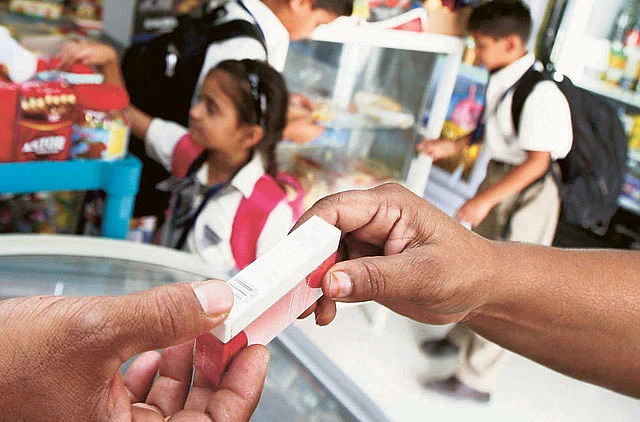Saudi Arabia moves to ban tobacco sales in small shops and grocery stores
New draft rules to tighten tobacco and power drink sales

Dubai: Saudi Arabia’s Ministry of Municipalities and Housing has proposed a ban on the sale of tobacco products in kiosks, grocery stores, and central markets, as part of a comprehensive set of draft regulations aimed at tightening control over tobacco sales and public health standards.
The draft rules, published on the government’s Istitlaa public consultation platform, seek input from citizens before being finalised.
Under the proposed regulations, the sale of tobacco products must comply with the Saudi Food and Drug Authority (SFDA) standards and remain completely out of sight within commercial establishments.
The rules also reinforce existing prohibitions on selling tobacco to individuals under the age of 18, requiring sellers to verify age and display prominent health warnings at checkout counters.
These warnings must include graphic images and text highlighting the risks of smoking, stating: "Smoking and tobacco products are a major cause of diseases and cancer of the mouth, lungs, heart, and arteries."
The draft also bans all forms of tobacco advertising and promotion and prohibits smoking within retail establishments, both for employees and customers. Clear "No Smoking" signs must be displayed inside stores.
Beyond tobacco restrictions, the draft rules introduce new guidelines for the sale of energy drinks, mandating that they be stored separately from other beverages in designated refrigerators or shelves with visible warning signs. The regulations also prohibit the sale of energy drinks to individuals under 16.
The proposal further tightens operational guidelines for grocery stores and supermarkets, including, prohibiting obstructions in parking spaces assigned in the building permit, banning the placement of products directly on the floor, requiring lower shelves to be at least 15 cm above ground level, mandating clear signage for store sections based on product categories to enhance shopper navigation and regulating home delivery services, requiring businesses to obtain official permits before offering deliveries.
Additionally, if shopping carts are provided, stores must allocate a designated area for them near the main entrance.
The draft rules also introduce stricter health regulations for food-handling workers, requiring all employees to be in good health and free from infectious conditions. Workers with skin diseases, open wounds, nasal discharge, or symptoms of foodborne illnesses such as diarrhea, fever, or vomiting must be temporarily removed from duties until medically cleared. Those diagnosed with cholera, hepatitis, or typhoid fever would be barred from working in food establishments.
Sign up for the Daily Briefing
Get the latest news and updates straight to your inbox
Network Links
GN StoreDownload our app
© Al Nisr Publishing LLC 2026. All rights reserved.